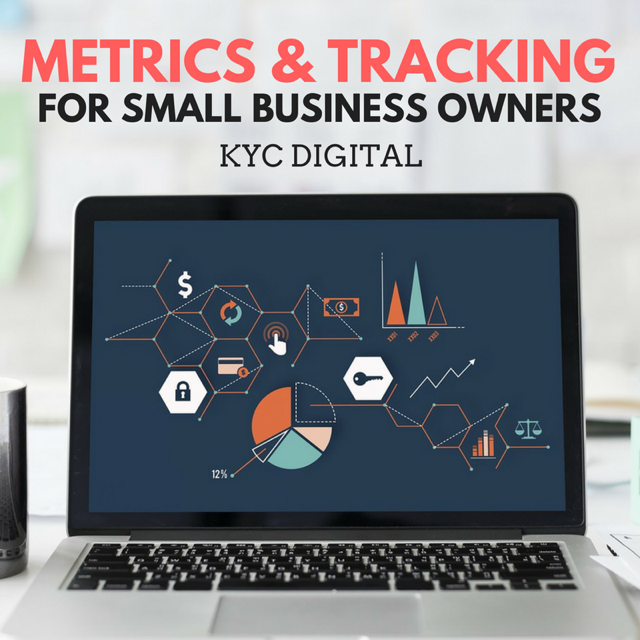Business Metrics and Tracking
Data-Driven Business Growth
Business metrics and tracking is a way to keep your finger on the pulse of your business. In fact, it's the only way to truly understand how you're doing and what you need to do next.
How to Keep Your Business on Track: Tracking Data Metrics
Keeping track of how your business is operating and performing on a day-to-day basis is important for businesses in any industry. Without tracking data, it will be harder to see how your business is progressing over time, spot red flags that need further investigation and keep tabs on how different aspects of your company are functioning. Keeping track of data also makes it easier to see which marketing initiatives are working and which ones aren’t. You can see which social media channels bring you the most traffic and engagement with an audience and which advertisements or partnerships aren’t performing well. Understanding where your business stands at any given time enables you to make informed decisions about what to do next. Creating a spreadsheet or tracking document with key performance indicators (KPIs) is essential for keeping track of important information about your company. Here are some tips on how you can do this effectively:
Tracking KPIs for Marketing and Advertising
When it comes to marketing and advertising, it is important to track the following KPIs to keep your business on track: - Campaign ROI: How effective is your marketing campaign? What is its Return on Investment (ROI) like? - Campaign ROI by channel: Which marketing channels are generating the most ROI? - Campaign cost: How much money is your company spending on marketing? - Campaign time: Is your marketing campaign running as expected? - Campaign performance: How is your product doing? What are the current trends in your industry? - Competition analysis: What is the performance of your competitors like? - Campaign social performance: How is your audience responding to your product? What are they saying about it? - Campaign engagement by channel: Which social media channels are bringing you the most engagement? - Campaign exposure: How many people are seeing your ads? - Campaign reach: How many people are interacting with your ads?
Track Company-Wide Data
When tracking company-wide data, you will want to keep an eye on the following key metrics: - Sales: What is your current revenue like? What about your average revenue per customer? Are these trending upward or downward over time? - Gross profit: How much profit is your company making per product? - Net profit: How much profit is your company making overall? - Customer acquisition: What is the current rate of customer acquisition like? - Customer retention: How many customers are coming back to make more purchases? - Employee satisfaction: How happy are your employees? What are their key concerns and complaints? - Customer service satisfaction: How satisfied are your customers with your customer service? - Customer lifetime value: What is the average lifetime value of each customer? - Growth rate: What is your company’s growth rate like? - Customer acquisition cost: What does it cost to acquire a new customer? - Return on investment: How much profit is generated for money spent?
Track Employee Engagement and Culture
When it comes to outsourcing partners, team members, consultants, freelancers and employee engagement, you want to keep track of the following KPIs: - Employee satisfaction: What do your employees think of their job? What are their key concerns? - Employee turnover: How many people are quitting or being fired? What is the employee retention rate like? - Employee morale: What makeshem happy at work? What are their concerns? - Staff training: What type of training does your team need? Is it effective? - Staff feedback: What do your employees have to say about the company? About their job?
Track Productivity and Collaboration
When tracking productivity and collaboration, you want to keep an eye on the following KPIs: - New partnerships: What types of partnerships does your company need? Is there anyone you need to partner with? - Keyword ranking: How high are you ranking for certain keywords? What are the most important ones to rank for? - Product development velocity: How quickly are you generating new products? - Content creation velocity: How quickly are you creating new blog posts, guides, and other content? - Content engagement: What are readers saying about your content? How is it being received? - Product feedback: What are your customers saying about your products? Is there anything you can do to improve them? - New leads and sales: How many new leads and sales are you getting? - Keyword growth: What are the trends in your industry? What are people searching for?
Conclusion
Keeping track of data is essential for any business. Tracking data enables you to understand how your company is performing and where it needs to improve. In order to effectively track data, you need to first know what metrics are important to track. Then, you can organise this information into easy-to-read graphs and tables. With this data, you can make smarter business decisions and achieve your business goals. With this information, you can identify which business areas are underperforming, improve your marketing efforts and make data-driven decisions that will better your company.




